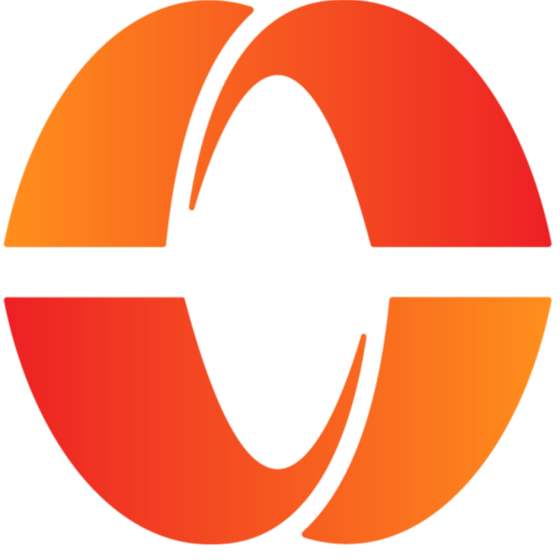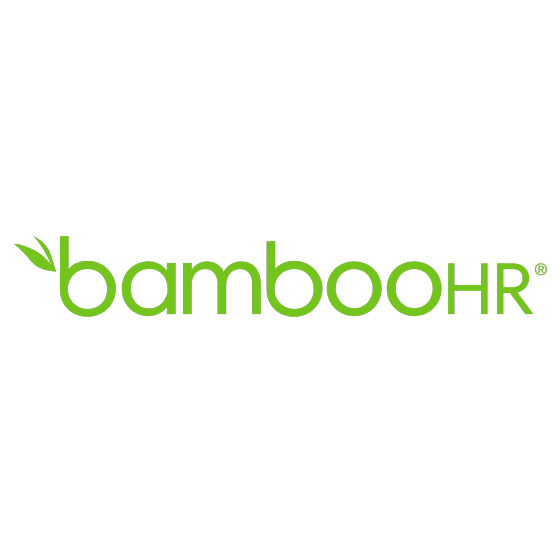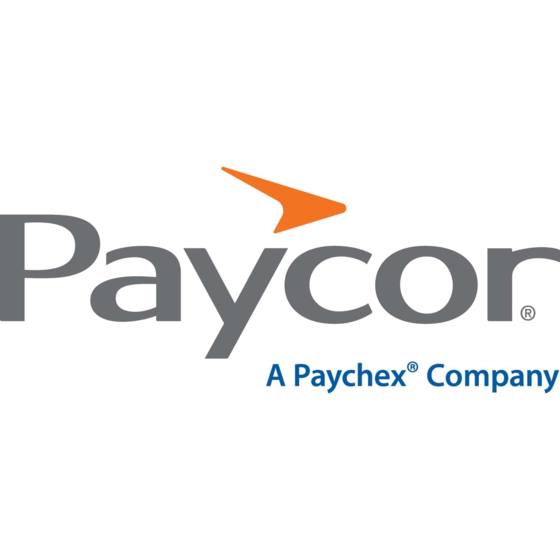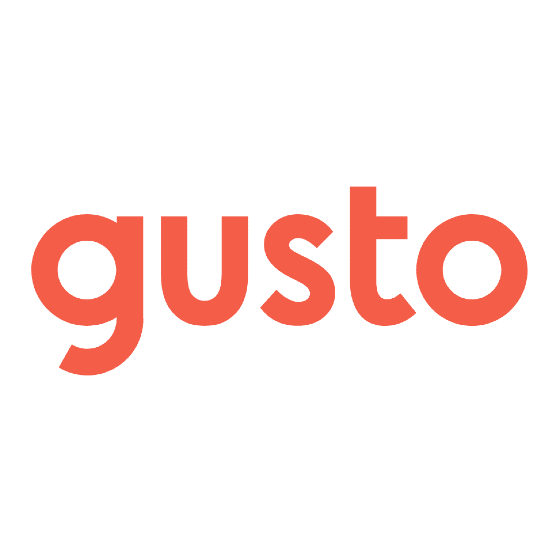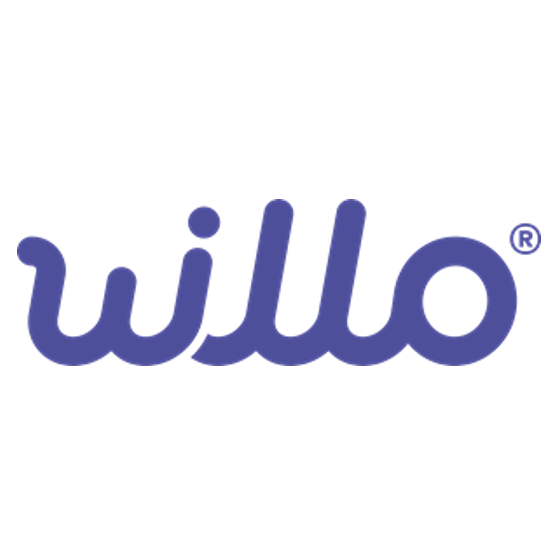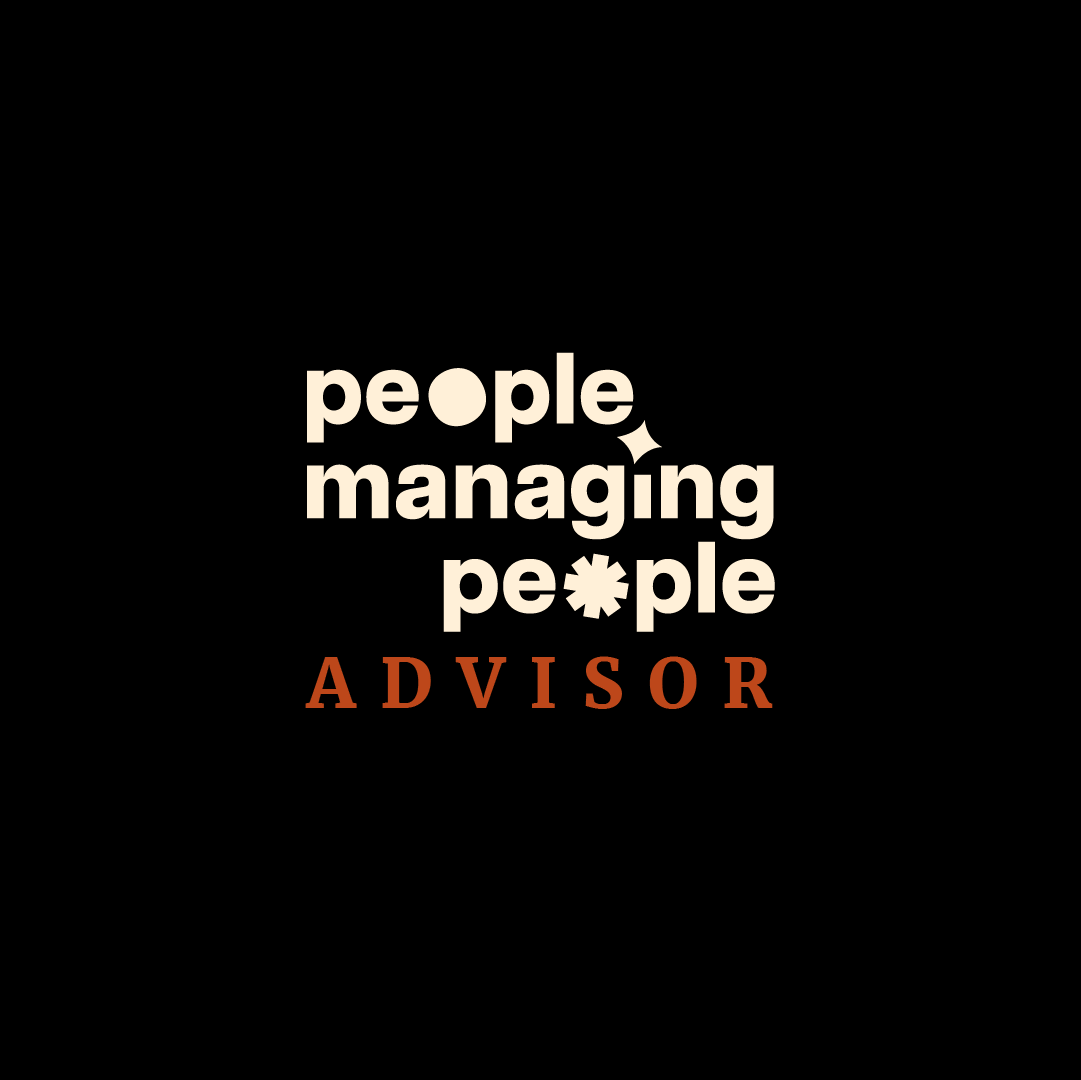10 Best Core HR Software Shortlist
Here's my pick of the 10 best software from the 23 tools reviewed.
Get free help from our HR software advisors to find your match.
Navigating the complexities of HR processes can be as challenging as choosing the right tools to manage employee data and simplify HR processes. Many organizations struggle with outdated systems and disconnected data, leading to inefficiencies and compliance risks.
As an HR technology analyst, I've noticed a rising demand for core HR software that integrates with existing systems while enhancing workflow efficiency. Drawing on my expertise in HR solutions, I have assessed various leading core HR software options to help organizations make well-informed decisions tailored to their unique requirements.
Whether you're looking to implement a new HR system or optimize your current processes, my guide will offer the insights needed to simplify operations and significantly enhance your HR department's overall effectiveness.
Why Trust Our Software Reviews
We’ve been testing and reviewing HR software since 2019. As HR professionals ourselves, we know how important and difficult it is to make the right decision when selecting software.
We invest in deep research to help our audience make better software purchasing decisions. We’ve tested more than 2,000 tools for different HR management use cases and written over 1,000 complete software reviews. Learn how we stay transparent, and take a look at our software review methodology.
Best Core HR Software: Pricing Comparison Chart
This comparison chart summarizes pricing details for my top core HR software selections to help you find the best option for your budget and business needs.
| Tool | Best For | Trial Info | Price | ||
|---|---|---|---|---|---|
| 1 | Best for global payroll | Free trial + demo available | From $29/month | Website | |
| 2 | Best for employee self-service | Free demo available | Pricing upon request | Website | |
| 3 | Best for data-driven HR management | 7-day free trial | From $6.19/user/month (billed annually) | Website | |
| 4 | Best for tailored HR and payroll solutions | 30-day free trial | Pricing upon request | Website | |
| 5 | Best for automated payroll and HR | Free demo available | From $40/month + $6/user/month | Website | |
| 6 | Best for customizable HR solutions | Free trial available | From $4/user/month (min of $150/month) | Website | |
| 7 | Best for complete HR management | Free demo available | Pricing upon request | Website | |
| 8 | Best for high-performance culture creation | Free trial + free demo available | From $500/month | Website | |
| 9 | Best for AI-driven HR automation | Not available | Pricing upon request | Website | |
| 10 | Best for Microsoft ecosystem integration | Not available | Pricing upon request | Website |
-

Rippling
Visit WebsiteThis is an aggregated rating for this tool including ratings from Crozdesk users and ratings from other sites.4.8 -

Willo
Visit WebsiteThis is an aggregated rating for this tool including ratings from Crozdesk users and ratings from other sites.4.8 -

edays
Visit WebsiteThis is an aggregated rating for this tool including ratings from Crozdesk users and ratings from other sites.4.3
Best Core HR Software Reviews
Here are my detailed summaries of the best core HR software that made it into my top 10 list, including notes on why I picked them. Each review offers a detailed look at the key features, pros & cons, integrations, and ideal use cases of each system to help you find the best fit for you.
Deel is a comprehensive HR platform designed to manage payroll, HR, and compliance for businesses operating globally, allowing them to hire international employees and contractors and automate various processes.
Why I Picked Deel: One of the most compelling aspects of Deel is its ability to simplify global payroll and compliance. The platform supports automated payroll processing in over 150 countries, ensuring that businesses can manage payments and compliance across different jurisdictions. This is particularly beneficial for companies with a global workforce, as it eliminates the complexities associated with managing multiple payroll systems and ensures alignment with local regulations.
Standout Features & Integrations:
Features include automated payroll processing, onboarding support, localized benefits administration, compliance management, an HRIS that manages employee data, time off, expenses, reporting, and performance management, and in-house visa and work immigration support.
Integrations include Xero, Bob, Okta, Expensify, BambooHR, Slack, QuickBooks, and NetSuite.
Pros and cons
Pros:
- Support for immigration and work visas
- Strong emphasis on compliance
- Automated global payroll
Cons:
- Onboarding process can be time-consuming
- Could offer more customization options
Paylocity is a cloud-based HR and payroll software designed to help businesses simplify their HR processes and improve employee engagement.
Why I Picked Paylocity: It covers key areas like employee record management, compliance tracking, and benefits administration. Its employee self-service feature lets your staff access important information like pay stubs or time-off balances without having to contact HR. The system also supports onboarding and offboarding processes, making it easier to manage transitions and keep everything in one place. For companies dealing with compliance, Paylocity keeps track of key documents and regulations so you can stay on top of legal requirements.
Standout Features & Integrations:
Features include performance management, time tracking, automated workflows, mobile access, tax management, ACA compliance, surveys, compensation management, team collaboration tools, task management, and reporting analytics.
Integrations include ClearStar, Microsoft Dynamics 365, 7shifts, AirMason, APA Benefits, Azure, Atlassian, Asana, Box, ClearCompany, Dropbox, Freshdesk, Google Workspace, Greenhouse, HubSpot, Slack, Salesforce, Trakstar, and Zoho People.
Pros and cons
Pros:
- Includes tax compliance services
- Include performance management features
- On demand payment options
Cons:
- Lacks support for independent contractor payments
- Setup can be time consuming
BambooHR is a cloud-based human resources software designed to help small and medium-sized businesses with their core HR functions.
Why I Picked BambooHR: I like its strong focus on employee experience and data-driven HR management. BambooHR’s performance management system stands out because it not only facilitates regular feedback but also encourages continuous improvement through 360-degree feedback and self-assessments. Additionally, its time-tracking features are excellent for managing both time-off policies and employee hours. The employee self-service options also help staff manage their personal information, allowing HR teams to focus on more strategic initiatives.
Standout Features & Integrations:
Features include advanced reporting and analytics, employee well-being surveys, automated alerts for important dates and tasks, a mobile app for on-the-go HR management, and e-signature functionality for digital documentation.
Integrations include QuickBooks, Slack, G Suite, Zapier, Xero, Namely, Okta, and Microsoft 365.
Pros and cons
Pros:
- Offers a wide range of HR functionalities
- Easy-to-use interface
- Good mobile app
Cons:
- Could offer better customization options
- Benefits administration only available to US-based employees
New Product Updates from BambooHR
Automated Rate Calculations for Benefits Management
The rate calculator in BambooHR now automates basic life, AD&D, and life/AD&D plan cost calculations, aiding in benefits management by minimizing manual entries. For more details, visit Bamboo HR's website to learn more.
Paycor provides HR and payroll solutions designed to empower leaders and simplify HR processes. It is best known for its tailored HR and payroll solutions, offering industry-specific features that cater to diverse business needs.
Why I Picked Paycor: I chose Paycor for its customizable HR and payroll solutions that cater to various industries. What sets Paycor apart is its focus on empowering leaders with tools that simplify HR tasks and enhance talent management. I believe Paycor is best for tailored HR and payroll solutions because it offers industry-specific features that address unique business challenges, making it a versatile choice for different sectors.
Standout Features & Integrations:
Features include complete HR and payroll software, talent acquisition tools, and workforce management solutions. Paycor's platform also offers benefits administration and advanced analytics to help businesses make informed decisions.
Integrations include AssureHire, Clearstar, Sterling, JobTarget, HCM Unlocked, Points North, Onwards HR, SafeGuard Global, WEX, Clarity, Human Interest, HealthEquity, Ignite, Cloverleaf, Labor IQ, and Netspend.
Pros and cons
Pros:
- Advanced analytics
- Industry-specific features
- Complete HR solutions
Cons:
- Limited customization
- Reporting feature can be confusing
Gusto is an online payroll and HR solution that offers a complete range of products and features to help businesses manage their payroll, benefits, and HR needs. It is best known for its automated payroll and HR services.
Why I Picked Gusto: I chose Gusto for this list because it provides automated payroll and HR solutions, making it a standout option for businesses looking to simplify these processes. Gusto's automation capabilities significantly reduce the time and effort required to manage payroll and HR tasks, which is an important advantage for businesses of all sizes. Its user-friendly interface and feature set make it a top choice for those seeking reliability in payroll and HR management.
Standout Features & Integrations:
Features include automated payroll processing, time tracking, workers' comp protection, employee benefits, hiring and onboarding tools. Other features include talent management, insights and reporting, and solutions for businesses of all sizes and industries.
Integrations include QuickBooks, Xero, FreshBooks, TSheets, Homebase, When I Work, Expensify, Hubstaff, Clover, and ZipBooks.
Pros and cons
Pros:
- User-friendly interface
- Complete HR tools
- Automated payroll processing
Cons:
- Basic performance management tools
- Lacks payroll card options
SutiHR is a complete core HR software that offers a range of features to manage HR functions for organizations of all sizes. It includes talent management, time tracking, core HR functions, mobile capabilities, and integrations.
Why I Picked SutiHR: I chose SutiHR for its customizable HR solutions, which allow organizations to tailor the software to their specific needs. This flexibility makes it stand out from other core HR software. SutiHR offers a wide range of modules that can be adapted to fit the requirements of different businesses.
Standout Features & Integrations:
Features include talent management, time tracking, core HR functions, mobile capabilities, and integrations. SutiHR helps organizations simplify processes, improve data accuracy, enable informed decision-making, ensure compliance, and save costs.
Integrations include QuickBooks, ADP, SAP, Oracle, Salesforce, Google Workspace, and Slack.
Pros and cons
Pros:
- Excellent customer support
- Complete feature set
- Highly customizable
Cons:
- Complex initial setup and configuration
- Limited advanced analytics
Darwinbox is a complete HR management software designed to manage the entire employee lifecycle from hire to retirement. It is best for complete HR management due to its wide range of features, including recruitment, onboarding, performance management, payroll, and employee engagement tools.
Why I Picked Darwinbox: I chose Darwinbox for its large feature set and ability to manage the entire employee lifecycle on a single platform. Its mobile-first approach ensures access to HR services anytime, anywhere, while AI-powered tools and customizable workflows make it versatile for large enterprises. Darwinbox provides complete HR management, covering all HR aspects from recruitment to retirement, with analytics for strategic decision-making.
Standout Features & Integrations:
Features include AI-based CV parsing, goal cascading, multi-stakeholder feedback, geo-tagged attendance, and a simple four-step payroll process. The platform also offers facial recognition for authentication and a voicebot for interactive actions.
Integrations include Microsoft Teams, Google Workspace, Slack, Zoom, SAP, ADP, Oracle, and Salesforce.
Pros and cons
Pros:
- AI-powered tools
- Mobile-first approach
- Complete feature set
Cons:
- Inconsistent customer support experience
- May require customization for specific needs
Keka is a core HR software designed to simplify HR processes and create a high-performance culture within organizations. It is best known for its ability to foster a high-performance culture through features like performance management, continuous feedback, and goal setting.
Why I Picked Keka: I chose Keka for this list as it focuses on creating a high-performance culture. Unlike other HR software, Keka integrates performance management with continuous feedback and goal setting. This makes it well suited for organizations aiming to drive employee engagement and productivity. Its complete suite of features, including time and attendance tracking, hiring and onboarding, and payroll, makes it a versatile tool for various HR needs.
Standout Features & Integrations:
Features include performance management, automated time and attendance tracking, and an integrated hiring platform. Keka also offers a single window for approvals and a reliable help-desk for faster resolution of employee issues.
Integrations include Xero, Zoom, Microsoft Teams, Google Meet, LinkedIn, Zoho Books, and Naukri.
Pros and cons
Pros:
- Integrated hiring platform
- Automated time tracking
- Complete performance management
Cons:
- Limited global payroll support
- Mobile app limitations
ClayHR, formerly known as BizMerlin, is a software solution that aims to simplify various HR processes through AI-driven automation. It offers AI capabilities that enhance efficiency and scalability in HR operations.
Why I Picked ClayHR: I chose ClayHR for its AI-driven automation features, which set it apart from other core HR software. The platform's ability to automate complex HR tasks using AI makes it a top choice for organizations looking to enhance operational efficiency. Its scalability and complete feature set make it ideal for mid to large-sized organizations.
Standout Features & Integrations:
Features include AI-driven automation for HR processes, complete performance management, and data integrations. The platform supports various HR functions, including applicant tracking, onboarding, performance reviews, and time and attendance tracking.
Integrations include QuickBooks, Microsoft Teams, ADP, Indeed, Paychex, Zapier, Salesforce, Zoom, Checkr, and LinkedIn.
Pros and cons
Pros:
- Scalable solution
- Complete feature set
- AI-driven automation
Cons:
- Limited template options
- May require additional setup time
Lanteria HR is a customizable core HR software that integrates with the Microsoft ecosystem. It offers a complete suite of HR management tools to simplify HR processes and improve employee engagement.
Why I Picked Lanteria HR: I chose Lanteria HR for its deep integration with Microsoft, which makes it an ideal choice for businesses already using Microsoft products. Lanteria HR stands out due to its ability to centralize employee data and simplify HR processes, making it a good option for companies already leveraging their existing Microsoft infrastructure.
Standout Features & Integrations:
Features include HR management modules such as employee data management, time and attendance tracking, performance management, and recruitment. The software also offers analytics and reporting capabilities, enabling organizations to make data-driven decisions.
Integrations include SharePoint, Office 365, Microsoft Teams, ADP, Power BI, and Microsoft Exchange.
Pros and cons
Pros:
- Complete reporting
- Customizable modules
- Microsoft integration
Cons:
- Basic analytics capabilities
- Setup can be complex
Other Core HR Software
Below is a list of additional core HR software that didn’t make it into my top 10 shortlist, but are still worth checking out!
- APS
For restaurant payroll solutions
- Criterion HCM
For AI-powered HR platform
- Justworks
For all-in-one PEO services
- Trinet
For small business HR solutions
- Oracle HCM Cloud
For global HR solutions
- Workday
For financial and HR planning
- Ceridian Dayforce
For real-time data access
- ADP Workforce Now
For payroll and tax services
- Rippling
For integrating HR and IT management
- SAP SuccessFactors
For talent management
- Zoho People
For agile HR management
- Vibe HCM
For employee engagement and communication
- UKG Pro
For complete workforce management
Related HR Software
If you still haven't found what you're looking for here, check out these other related tools we've tested and evaluated.
- HR Software
- Payroll Software
- Recruiting Software
- Employer of Record Services
- Applicant Tracking Systems
- Workforce Management Software
Selection Criteria for Core HR Software
The criteria for choosing core HR software should address buyer needs and common pain points, ensuring the tool effectively serves its intended purpose. As an expert who has personally tried and researched this type of human resource management software, here are the requirements I use when evaluating these tools.
Core Functionalities (25% of total score): To be considered for inclusion in this list, each solution had to fulfill these common use cases first:
- Employee Data Management
- Payroll Processing
- Time and Attendance Tracking
- Benefits Administration
- Compliance Management
Additional Standout Features (25% of total score): To help me find the best software out of numerous available options, I also kept a keen eye out for unique features, including the following:
- Innovative Integrations
- Advanced HR Analytics
- Mobile Accessibility
- Customizable Workflows
- AI-Powered Features
- HR Data Processing
Usability (10% of total score): To evaluate the usability of each system, I considered the following:
- Intuitive Interface
- Role-Based Access
- Drag-and-Drop Functionality
- Responsive Design
Onboarding (10% of total score): To get a sense of each software provider's customer onboarding process, I considered the following factors:
- HR Information Training Videos
- Interactive Product Tour
- Templates
- Chatbots and Webinars
Customer Support (10% of total score): To evaluate the level of customer support each vendor offered, I considered the following:
- 24/7 Support
- Multiple Support Channels
- Knowledge Base
- Dedicated Account Managers
Value for Price (10% of total score): To gauge the value of each software, I considered the following factors:
- Transparent Pricing
- Scalability
- Feature-to-Cost Ratio
- Free Trials
Customer Reviews (10% of total score): Evaluating customer reviews is the final element of my selection process, which helps me understand how well a product performs in the hands of real users. Here are the factors I considered:
- User Satisfaction Metrics
- Feature Ratings
- Support Feedback
- Ease of Use
Using this assessment framework helped me identify the core HR systems that go beyond basic requirements to offer additional value through unique features, intuitive usability, smooth onboarding, effective support, and overall value for price.
How to Choose Core HR Software
Remember the following points as you work through your unique software selection process.
- Identify Organizational Needs: Before diving into vendor research, take time to understand the specific needs of your stakeholders, such as HR team members, leaders, and regular employees. This will help you identify what is required from your HR software. For example, if your HR department struggles with manual data entry, you might prioritize software with solid automation features.
- Research Vendors: Familiarize yourself with your use case's leading HR software solutions. Read reviews, case studies, and customer testimonials to understand each option's strengths and weaknesses. For instance, if you need a system that integrates well with your existing payroll software, look for vendors known for their integration capabilities.
- Make a Shortlist and Reach Out: Once you have identified potential vendors, create a shortlist and contact them for demos and detailed information. This step is essential for understanding how each software solution can meet your specific needs. For example, if you need a user-friendly interface, ensure that the shortlisted vendors provide a demo to showcase their software's usability.
- Make the Business Case: Compile all the gathered data to create a business case for the HR software. This should include the cost and pain points the software will solve, the implementation timeline, and the expected ROI. For instance, if the software can reduce the time spent on administrative tasks by 50%, highlight this as a key benefit in your business case.
- Implement and Onboard: Ensure that stakeholders are aware of the new solution and feel confident using it. Effective change management is essential for successful implementation. For example, provide complete training sessions and resources to help employees get up to speed with the new software.
Trends in Core HR Software
Here are some trends I’ve observed in core HR solutions and their potential implications for the future. I analyzed numerous product updates, press releases, and logs to identify key insights.
- AI-Powered HR Solutions: Artificial Intelligence (AI) is becoming integral to HR software, enhancing decision-making and automating repetitive tasks. AI chatbots and machine learning algorithms are being used to simplify recruitment, performance management, and employee engagement. This trend is significant because it allows HR teams to focus on strategic initiatives rather than administrative tasks.
- Hybrid and Remote Work Enablement: With the rise of hybrid and remote work models, HR software is increasingly focused on supporting distributed teams. Tools for virtual collaboration, remote onboarding, and employee well-being are becoming essential. This trend is significant as it helps organizations maintain productivity and employee satisfaction in a flexible work environment.
- Skills-Based Talent Management: Organizations are transitioning to skills-based talent management systems, which focus on identifying and developing specific skills within the workforce. Advanced business intelligence tools are used to create skills libraries and match employees to roles and projects. This trend is significant because it promotes internal mobility and continuous learning.
- Cybersecurity and Data Privacy: As HR systems handle sensitive employee data, cybersecurity, and privacy are becoming top priorities. HR software incorporates advanced security measures to protect against data breaches and ensure compliance with regulations. This trend is vital for maintaining trust and safeguarding organizational data.
- Employee Experience Platforms: New employee experience platforms are emerging to provide an integrated user experience. These platforms combine various HR functions into a mobile-friendly interface, enhancing accessibility and engagement. This trend is essential as it improves employee experience and supports retention efforts.
What is Core HR Software?
Core HR software is a tool that handles key human resources functions, including employee data management, payroll, and benefits administration. HR professionals and managers use it to keep accurate employee records, efficiently process payroll, and manage benefits enrollment.
This type of HR software generally includes modules for managing employee information, processing payroll, administering benefits, and compliance reporting. These features help organizations maintain accurate records, ensure timely payroll, and comply with regulatory requirements.
Features of Core HR Software
When choosing core HR software, it's essential to identify the features that best meet your organization's needs. Below, I've outlined the key features to consider:
- Core HRIS: This feature provides a single source of employee data, including payroll and benefits. It is essential for maintaining an organized and accessible employee system of record.
- Payroll Processing: The ability to process payroll for various compensation plans, including tax filing capabilities, ensures accurate and timely employee payments.
- Benefits Management: Managing employee benefits such as health insurance, 401k contributions, and flexible spending accounts is simplified, reducing manual work and errors.
- Recruiting/Onboarding: This feature helps attract and manage candidates and introduce new employees to the company, ensuring a smooth transition and an effective workforce.
- Time and Attendance Tracking: Monitoring employee hours, schedules, and attendance helps reduce overtime costs and ensures accurate payroll calculations.
- Performance Management: Administering performance reviews and goal setting provides a structured framework for evaluating and improving employee performance.
- Succession Planning: Identifying and training potential future leaders within the organization helps with recruitment and retention strategies.
- Training and Development: Providing tools for employee growth and compliance with training requirements promotes a skilled and knowledgeable workforce.
- Reporting/Analytics: Access to real-time data and customizable reports helps make informed decisions and track key performance indicators.
- Employee Engagement: Measuring and improving employee engagement through surveys and other tools enhances retention and productivity.
Benefits of Core HR Software
Core HR software is essential for modern organizations, as it simplifies and automates key human resource functions. Here are five key benefits of using core HR software for users and organizations.
- Centralized Data Management Core HR software is a centralized hub for storing and accessing vital employee information, payroll data, compliance records, and more. This centralization ensures data accuracy, consistency, and easy retrieval, which enhances overall organizational efficiency.
- Streamlined HR Processes By automating repetitive HR tasks such as leave management, payroll processing, and document handling, core HR software significantly reduces the administrative burden on HR teams. This automation allows HR professionals to focus on more strategic initiatives, ultimately boosting productivity.
- Enhanced Employee Engagement Core HR software includes features like self-service portals, which empower employees to manage their data, request time off, and enroll in benefits. This autonomy fosters a more transparent and responsive work environment, increasing employee satisfaction and engagement.
- Improved Compliance and Security The software ensures compliance with labor laws and regulations by maintaining accurate and timely employee data. Additionally, security measures protect sensitive information, safeguarding the organization against legal risks and data breaches.
- Valuable Insights through Data Analytics, Core HR software, provides powerful reporting and analytics tools that enable HR teams to gather valuable insights into workforce trends, employee behavior, and organizational dynamics. These data-driven insights support informed decision-making and strategic planning.
Leveraging core HR software can significantly enhance the effectiveness of HR operations. Centralizing data, automating processes, and offering valuable insights support daily HR tasks and align with long-term strategic goals.
Costs & Pricing of Core HR Software
This section provides a detailed estimate of average core HR software plans and associated costs. The data is derived from an analysis of common pricing tiers and the features they offer. By understanding these pricing structures, users can better assess their needs and budget considerations when choosing HR solutions that fit their specific requirements.
Below is a table outlining common plan types, average prices, and the features typically included.
Plan Comparison Table for Core HR Software
| Plan Type | Average Price | Common Features |
| Free Plan | $0 | Basic employee data management, limited user access, basic reporting |
| Personal Plan | $3-$10 per user /month | Attendance tracking, basic payroll, employee self-service portal |
| Business Plan | $10-$30 per user /month | Advanced payroll, benefits administration, performance management, compliance |
| Enterprise Plan | $30-50+ per user /month | Full HR suite including recruitment, onboarding tools, advanced analytics, integrations |
By carefully evaluating the features and costs of each plan, organizations can choose the core HR software that best aligns with their operational needs and budget, ensuring they have the right tools to manage HR processes effectively.
Core HR Software FAQs
Here are some of commonly asked questions about core HR software.
How can core HR software improve compliance management?
Core HR software can enhance compliance management by automating and streamlining processes that are prone to human error. These systems often include features for tracking and managing compliance with various regulations, such as labor laws, tax requirements, and health and safety standards.
For example, they can automatically update to reflect changes in legislation, ensuring that your organization remains compliant without manual intervention. Additionally, core HR software can generate reports and alerts to notify HR managers of upcoming compliance deadlines or potential issues, thereby reducing the risk of non-compliance and associated penalties.
What are the integration capabilities of core HR software with other business systems?
Integration capabilities are an important aspect of core HR software, as they allow the system to communicate and share data with other business applications. Most advanced core HR systems offer APIs (Application Programming Interfaces) that enable integration with payroll systems, time and attendance software, and other enterprise resource planning (ERP) systems.
This integration ensures that data is consistent across all platforms, reducing the need for duplicate data entry and minimizing errors. Additionally, integrated systems can provide a more complete view of employee data, which can be used for more effective decision-making and strategic planning.
How does core HR software support remote and hybrid work environments?
Core HR software supports remote and hybrid work environments by providing cloud-based access to HR functions and data. Employees and managers can access the system from any location with an internet connection, using various devices such as laptops, tablets, and smartphones.
This accessibility ensures that remote workers can perform essential HR tasks, such as submitting time-off requests, accessing pay stubs, and updating personal information, without needing to be physically present in the office. Additionally, core HR software often includes communication and collaboration tools that facilitate interaction between remote teams, helping to maintain productivity and engagement.
What are the customization options available in core HR software?
Customization options in core HR software allow organizations to tailor the system to meet their specific needs and workflows. These options can include customizable dashboards, reports, and workflows, as well as the ability to add or modify fields and forms.
Some systems also offer configurable user roles and permissions, enabling organizations to control access to sensitive information based on an employee’s role within the company. Customization ensures that the HR software aligns with the unique processes and requirements of the organization, enhancing its effectiveness and user adoption.
How does core HR software handle data security and privacy?
Data security and privacy are paramount in core HR software, given the sensitive nature of the information it manages. Advanced HR systems employ multiple layers of security measures, including encryption, secure access controls, and regular security audits. Encryption ensures that data is protected both in transit and at rest, while access controls restrict data access to authorized personnel only.
Additionally, many HR software providers comply with international data protection regulations, such as GDPR (General Data Protection Regulation) and CCPA (California Consumer Privacy Act), ensuring that employee data is handled in accordance with legal requirements. Regular security audits and updates further enhance the system’s ability to protect against emerging threats.
What is the total cost of ownership (TCO) for core HR software?
The total cost of ownership (TCO) for core HR software includes not only the initial purchase price but also ongoing costs such as subscription fees, maintenance, support, and potential upgrade expenses. It’s essential to consider all these factors when evaluating the cost of an HR system.
Some vendors offer transparent pricing models that outline all associated costs, while others may have hidden fees for additional features or services. Obtaining a detailed quote and understanding the long-term financial commitment can help organizations budget effectively and avoid unexpected expenses.
How does core HR software facilitate employee self-service?
Employee self-service is a key feature of core HR software, empowering employees to manage their HR-related tasks independently. Through a self-service portal, employees can access and update their personal information, view pay stubs, submit time-off requests, and enroll in benefits programs.
This functionality reduces the administrative burden on HR staff and enhances the employee experience by providing quick and easy access to essential HR services. Additionally, self-service portals often include resources such as company policies, training materials, and FAQs, further supporting employee autonomy and engagement.
What support and training options are available for core HR software?
Support and training options for core HR software vary by vendor but typically include a range of resources to ensure successful implementation and ongoing use. Common support options include online help centers, user manuals, video tutorials, and live chat or phone support.
Some vendors also offer personalized training sessions, either on-site or virtually, to help HR teams and employees become proficient with the system. Additionally, many providers offer consulting services to assist with system configuration, data migration, and process optimization, ensuring that the software meets the organization’s specific needs and maximizes its value.
What’s Next?
To remain up to date on all the latest in people management, subscribe to our newsletter for leaders and managers.
You'll receive insights and offerings tailored to leaders and HR professionals straight to your inbox.


